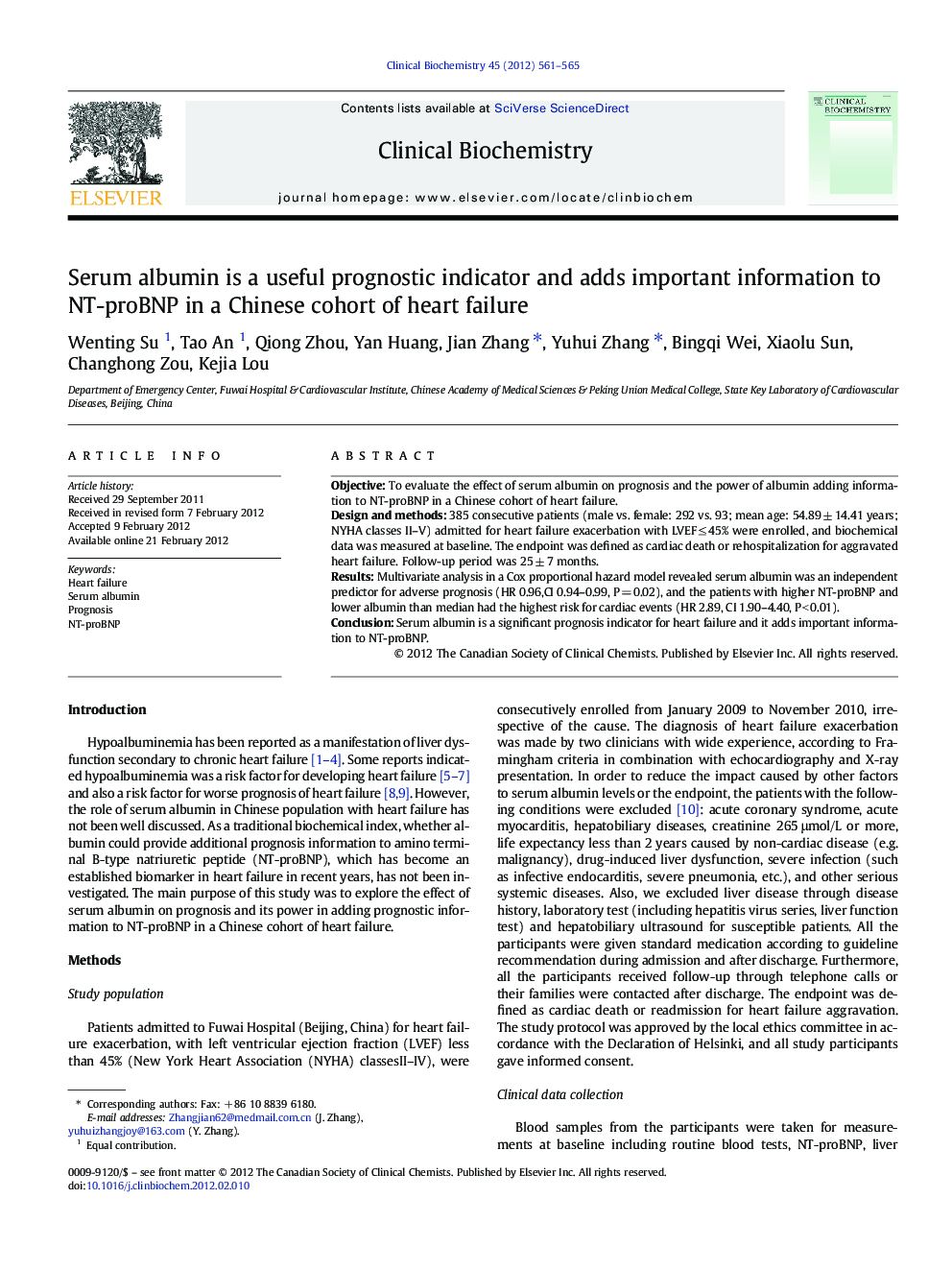| Article ID | Journal | Published Year | Pages | File Type |
|---|---|---|---|---|
| 1970493 | Clinical Biochemistry | 2012 | 5 Pages |
ObjectiveTo evaluate the effect of serum albumin on prognosis and the power of albumin adding information to NT-proBNP in a Chinese cohort of heart failure.Design and methods385 consecutive patients (male vs. female: 292 vs. 93; mean age: 54.89 ± 14.41 years; NYHA classes II–V) admitted for heart failure exacerbation with LVEF ≤ 45% were enrolled, and biochemical data was measured at baseline. The endpoint was defined as cardiac death or rehospitalization for aggravated heart failure. Follow-up period was 25 ± 7 months.ResultsMultivariate analysis in a Cox proportional hazard model revealed serum albumin was an independent predictor for adverse prognosis (HR 0.96,CI 0.94–0.99, P = 0.02), and the patients with higher NT-proBNP and lower albumin than median had the highest risk for cardiac events (HR 2.89, CI 1.90–4.40, P < 0.01).ConclusionSerum albumin is a significant prognosis indicator for heart failure and it adds important information to NT-proBNP.
► Serum albumin on prognosis of Chinese heart failure population firstly testified. ► Serum albumin was an independent prognosis indicator for this cohort. ► Serum albumin adds important prognosis information to NT-proBNP.
